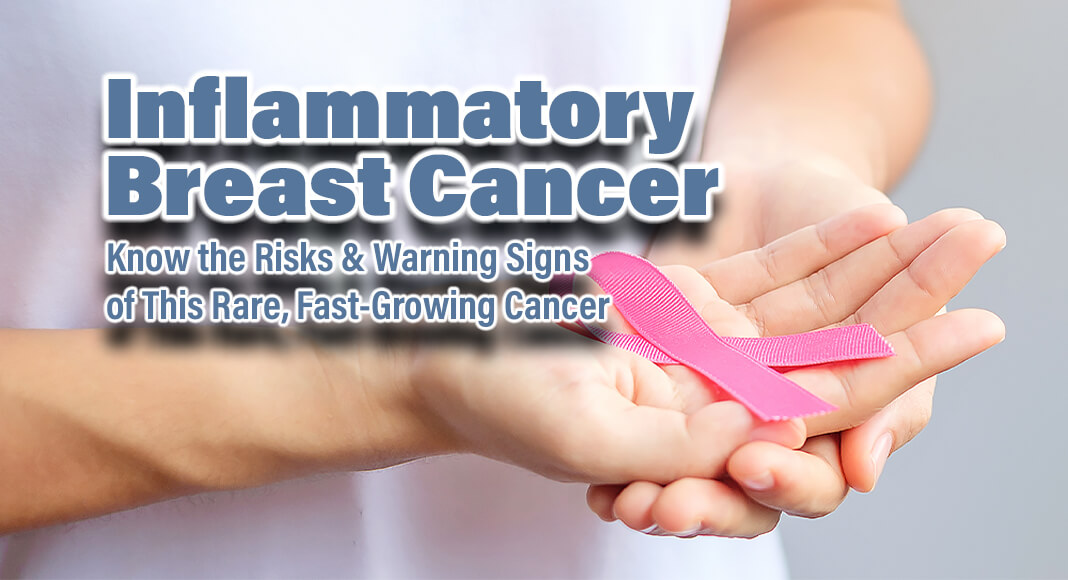
Mega Doctor News
By American Cancer Society (ACS)
Newswise — Inflammatory breast cancer (IBC) is a rare type of breast cancer. It only accounts for one to five percent of all breast cancer cases, but it’s important to know your risk and the warning signs, as this form of the disease is aggressive, fast-growing, and hard to detect early. For October, during Breast Cancer Awareness Month, the American Cancer Society (ACS) is highlighting IBC to help women be aware of this invasive cancer.
“IBC is tricky as it doesn’t usually present with a breast lump like many women expect when they think of a breast cancer. Instead, the disease causes inflammatory symptoms, like swelling and redness as cancer cells block lymph vessels in the skin,” said Dr. William Dahut, chief scientific officer at the American Cancer Society. “These symptoms may show up quickly – over just three to six months, so if you experience them, it is important to investigate with your healthcare team right away.”
Also concerning, IBC may not show up on a mammogram, and it can grow and spread more quickly than other forms of breast cancer. Because of this and because it involves the skin, all cases of IBC are considered advanced to at least Stage III when first diagnosed, and in about one-third of cases, the cancer has spread to distant parts of the body when it is diagnosed.
Women at risk for IBC include:
- Women under 40 years old
- Black women
- Women who are overweight or obese
Warning signs for IBC include:
- Swelling (edema) of the skin of the breast
- Redness involving more than one-third of the breast
- Pitting or thickening of the skin of the breast so that it may look and feel like an orange peel
- A retracted or inverted nipple
- One breast looks larger than the other
- One breast feels warmer and heavier than the other breast
- A breast that may be tender, painful, or itchy
- Swelling of the lymph nodes under the arms or near the collarbone
Some of those symptoms can also be signs of an infection, so a doctor may at first treat a patient with antibiotics. If symptoms don’t clear within 7 to 10 days of antibiotic treatment, more tests must be done to check for cancer or other problems. IBC should be considered as a stronger possibility if a woman with symptoms is not pregnant or breastfeeding or has already gone through menopause.
Diagnosis of IBC typically involves imaging tests, like a mammogram, breast ultrasound, or breast MRI, and always includes a biopsy, where a small piece of breast tissue is removed and evaluated in a lab.
If IBC has not spread beyond the breast, treatment usually includes chemotherapy first, followed by surgery to remove the cancer. Radiation and other more targeted drug therapies are given after surgery. If IBC has spread to other body parts, it is treated with chemotherapy, hormone therapy, and targeted drug therapy.
“There is encouraging news in the form of new drugs and treatment combinations for IBC,” added Dahut. “Specific drug combinations or combinations of drugs and radiation therapy are being tested to help keep the cancer from returning. For advanced disease, treatments that include new targeted therapies are being studied and certain immunotherapy drugs have already been approved for treatment of IBC that is triple negative.”
Learn more about IBC at cancer.org/inflammatorybreastcancer.









